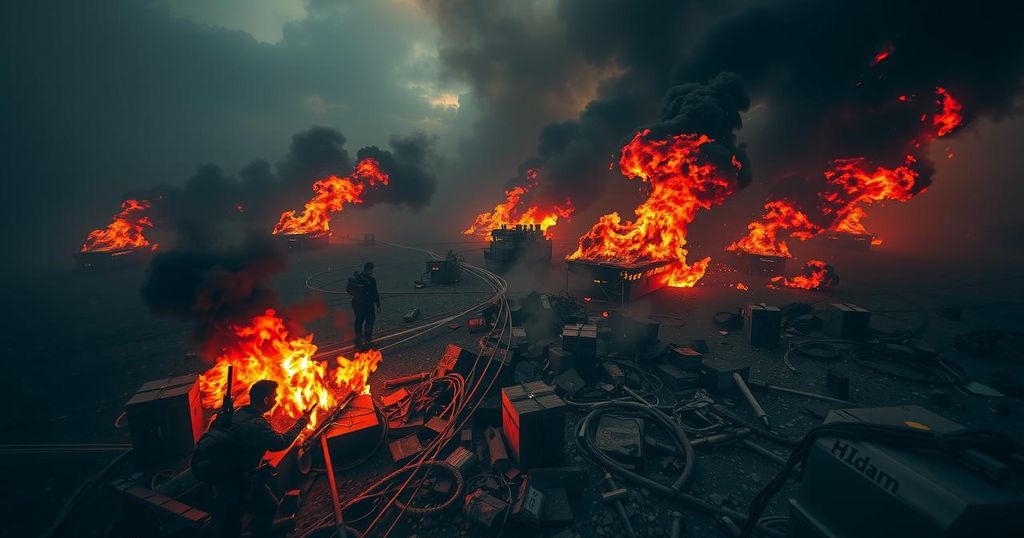Syria’s Rebel Offensive: A Catalyst for Renewed Geopolitical Tensions

Syrian rebels recently launched a major offensive against President Assad’s forces, seizing control of areas including Aleppo and forcing Russian and Iranian allies to retreat. This escalation follows a ceasefire in Lebanon and highlights ongoing geopolitical rivalries in the region, as the dynamics in Syria continue to shift amid the longstanding conflict.
Recent escalations in northwest Syria have seen Syrian rebel forces launch a significant offensive against the government of President Bashar al-Assad. Following a recent ceasefire in Lebanon between Israel and Hezbollah, rebels seized control of strategic areas, including parts of Aleppo and the town of Tel Rifaat, driving out both Iranian-backed militias and Russian forces from key positions. This resurgence of conflict has highlighted the fragile nature of the geopolitical landscape in Syria, with longstanding rivalries and competing interests among various international powers further complicating the situation.
The offensive marks a critical moment in Syria’s protracted civil war, which began in 2011 amid a demand for democratic reforms. The support of Iran and Russia for al-Assad, which includes military assistance and strategic coordination, has faced recent challenges, for the rapid advancement of rebel forces underscores the volatility that continues to characterize the region. The situation remains precarious, revealing how swiftly conflicts can reignite within a contested geopolitical arena that has seen numerous actors vying for influence over the years.
The Syrian conflict, which erupted from an uprising against President Bashar al-Assad’s regime in 2011, has evolved into a multifaceted war involving various domestic and international players. Iran and Russia have served as critical allies to al-Assad, providing military support that has helped him maintain power amid continuous challenges from rebel factions. The recent shifts in control in northwest Syria are symptomatic of the persistent instability within the region, as local dynamics often reflect broader geopolitical tensions.
The recent rebel offensives in Syria signify a notable shift in control and influence in a conflict that has involved numerous international powers. As Iran and Russia grapple with these developments, the situation underscores the potential for rapid escalation in a region already fraught with tensions. The ongoing conflict remains a reflection of deeper geopolitical struggles that long precede the current hostilities, marking Syria as a central arena for international rivalry.
Original Source: www.nytimes.com








